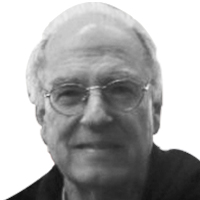SEOUL—When North Korean leader Kim Jong Un flies to Singapore to see U.S. President Donald Trump next week, he may be more worried about what’s happening back home than he is about the deal the American has in mind.
That’s the lesson of a shake-up just announced in the top leadership of North Korea’s armed forces, including the dismissal of an old-time general remembered in Pyongyang as “the last pallbearer.” Kim Jong Gak, dismissed from his crucial post as director of the General Political Bureau of the Korean People's Army, is the sole survivor of the six generals who carried the coffin of Kim Jong Un’s father, Kim Jong Il, on a snowy day in December 2011.
His replacement is General Kim Su Gil, whose former position as chairman of the Pyongyang committee of the Workers’ Party made him “mayor of Pyongyang.” He's seen as moderate, reliable, and malleable while Kim Jong Un tightens his grip on power before his first overseas trip since taking over from his father.
“Kim Jong Un is in deep agony thinking about his own safety when he flies to Singapore,” says Kim Tae-woo, former head of the Korea Institute of Defense Analyses here. “The North Koreans can do something while he’s gone.”
For Kim Jong Un to venture so far outside North Korea represents a sharp departure from the armed isolation that previously was seen as necessary to assure his security.
Although schooled in Switzerland, he has left North Korea just twice in his role as leader of the country—both times to cross his northern border in recent weeks to see China’s President Xi Jinping, whose support he badly needs to shake off sanctions imposed by the United Nations in retaliation for his nuclear and missile tests.
The prospect of Kim getting overthrown while he’s gone for two or three days may seem far-fetched, but in his world one can never be too careful or too ruthless. It was only last year that his agents allegedly murdered his half brother with VX nerve agent. In the past, word has spread that he’s executed enemies with anti-aircraft guns, flamethrowers, and even fed a once-powerful uncle to some hungry dogs. (That rumor probably wasn’t true.)
In any case there is no doubt he would feel vastly more secure with a new set of generals beholden to him for their promotions. “He wants to get his own people for the top positions,” said Choi Jin-wook, a North Korean expert now at Ritsumeikan University in Kyoto. “He needs to feel, ‘You are my people.’”
Besides dumping Kim Jong Gak, he’s reportedly gotten rid of two other aging generals, Pak Yong Sik as defense minister and Ri Myong Su as chief of staff of the Korean People’s Army, a term that encompasses all the armed forces. They were replaced by No Kwang Chol, moved up from first vice minister of defense, and Ri Yong Gil, who had been deputy chief of staff.
News of the shake-up, not announced officially in Pyongyang, was first reported in South Korea and Japan and confirmed by intelligence sources as well as independent analysts who follow moves within North Korea’s military establishment.
Assuming Kim has no real reason to fear a plot against him during his absence, he still faces trouble if his meeting with Trump does not produce real results. “He is taking a risk,” says Choi.
The new cast of characters at the top, according to that logic, may be more tolerant of compromise than the ones who lost their jobs. Those three crusty old-timers would surely not say so, at least in any way likely to get back to “the chairman of the state commission” and “commander” of the armed forces, but they could well view any concession to Trump as evidence of weakness.
“He made concessions already,” said Choi. “He gave up byungjin”—the program of combining economic and military goals—in favor of simple economic development. “And he’s giving up testing nuclear weapons.”
Nobody expects Kim Jong Un to go along with Trump’s version of CVID (complete verifiable irreversible denuclearization), but the pressure is definitely on Kim to show he can reach an accommodation that preserves North Korea’s status as “a nuclear state” but still placates Trump.
“President Trump has indicated, ‘We can’t trust you,’” said Choi. “Kim Jong Un has said, ‘We need step-by-step’”—meaning some version of “action for action” in which he appears to make some concession on giving up nukes while the U.S. relaxes sanctions.
By placing a new triumvirate in charge of his country’s 1.1-million-member military establishment, said Kim Sung-hak, a military analyst at Hanyang University, “He’s shown he’s determined to make changes.”
The message down the military chain of command is unmistakable. “He’s sending out a signal—any sign of defiance will be punished,” said Kim Sung-hak. “He’s telling the military they better brace themselves for change.”
The need to leave Pyongyang for the summit made the shifts all the more urgent.
“When he flies out of the country, who’s going to be in charge back home?” asked Kim Sung-hak. Whoever Kim Jong Un leaves in command, however briefly, “The one in charge needs to be someone he controls.”
While Kim Jong Un is demanding guarantees for the security of his country as a condition for any deal with Trump, he’s taking no chances on critics, skeptics, or enemies within.






